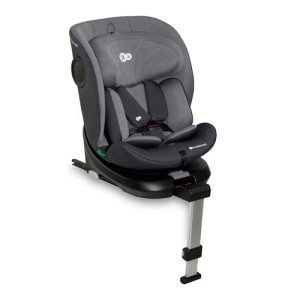Strollers and Pushchairs: The Ultimate Guide for Parents
Selecting the best stroller or pushchair is among the most necessary choices new parents will make. With a range of alternatives readily available, understanding the distinctions and functions can considerably affect the experience of both moms and dads and kids. This comprehensive guide aims to brighten the distinctions in between both, the elements to consider when acquiring, and answers to often asked concerns.
Understanding Strollers and Pushchairs
Strollers and pushchairs are often utilized interchangeably, however subtle distinctions set them apart. Pram And Pushchair Travel System is usually created for babies and young children, using a more flexible method with added features for comfort and security. On the other hand, pushchairs are typically targeted at older babies who can stay up unaided and tend to be more light-weight and portable.
Key Differences Between Strollers and Pushchairs
| Function | Stroller | Pushchair |
|---|---|---|
| Age Range | Newborn to toddler | Normally for 6 months to 3 years |
| Weight | Normally heavier due to additional features | Lighter and often easier to carry |
| Recline Position | Can generally recline totally for infants | Limited recline; often upright |
| Storage Space | More storage compartments and devices available | Very little storage, frequently simply a small basket |
| Convenience | Designed with more padding and assistance | Less cushioning, lighter frame for ease of use |
| Foldability | Might have intricate folding systems | Frequently created to fold quickly and compactly |
Aspects to Consider When Buying a Stroller or Pushchair
When choosing between a stroller or pushchair, several elements can form your decision. Here are some vital factors to consider:
1. Safety Features
- Harness system (5-point is the safest)
- Stability and strength of the frame
- Brakes that lock securely
2. Convenience
- Padding and assistance for the child
- Adjustable seat positions
- Ventilation for hot weather condition
3. Size and Weight
- How easy is it to carry?
- Will it suit your automobile?
- Does it take up too much storage area in your home?
4. Versatility
- Is it versatile for safety seat or carrycots?
- Can it deal with different terrains (metropolitan vs rural)?
5. Expense
- What is your budget plan?
- Does the stroller/pushchair offer worth for its features?
6. Relieve of Use
- How easily can it be folded and unfolded?
- Is it simple to browse through crowds or tight areas?
7. Sturdiness
- What products are used?
- How long is the guarantee?
8. Brand Reputation
- Search for brand names understood for producing quality items.
- Check out evaluations from other parents.
The Types of Strollers and Pushchairs
Strollers and pushchairs been available in numerous designs, each accommodating particular requirements. Here's an introduction:
1. Basic Strollers
- Sturdy and well-padded.
- Perfect for daily usage.
2. Light-weight Strollers
- Very portable and easy to bring.
- Ideal for travel.
3. Jogging Strollers
- Designed for active moms and dads.
- Can manage rugged terrains.
4. Convertible Strollers
- Can adjust from a single to double stroller.
- Flexible and grows with the household.
5. Travel Systems
- Includes a baby car seat and a stroller.
- Offers seamless transitions from cars and truck to stroller.
6. Umbrella Strollers
- Extremely portable and low-cost.
- Best for quick journeys and older babies.
| Kind of Stroller | Pros | Cons |
|---|---|---|
| Standard | Sturdy, comfortable | Heavier and bulkier |
| Light-weight | Easy to bring | Restricted functions |
| Jogging | Great for workout and outdoor usage | May not appropriate for infants |
| Convertible | Versatile for growing families | Bulkier than basic strollers |
| Travel System | Benefit of combined needs | Can be expensive |
| Umbrella | Extremely portable | Less durable |
Frequently asked questions About Strollers and Pushchairs
Q1: At what age can a baby use a stroller?
A lot of strollers are appropriate for usage from birth if they fully recline. Ensure to inspect manufacturer guidelines, as some might only accommodate babies over six months.
Q2: How do I clean my stroller or pushchair?
Most strollers have detachable and washable materials. Usage mild soap and water for the frame and inspect the fabric labels for specific cleaning directions.
Q3: Can I use a stroller on different terrains?
Yes, certain types, like running strollers or all-terrain strollers, are specifically developed for uneven surface areas. However, some light-weight designs are not ideal for rough surface.
Q4: How long can I expect my stroller to last?
Quality strollers can last several years, typically up until the child is around 4 to 5 years old, depending on usage and care.
Q5: Are strollers safe for overnight sleeping?
While some strollers offer flat recline positions that are ideal for baby sleep, it's crucial to follow security guidelines and keep track of the child while in the stroller.
Selecting the right stroller or pushchair is a choice that extends beyond mere option; it enhances the parenting experience and makes sure the safety and comfort of the kid. By comprehending the distinctions, evaluating various elements, and exploring the types offered, moms and dads can make an informed choice that accommodates their way of life and satisfies the requirements of their growing household. Keep in mind to constantly prioritize safety and convenience above everything!

